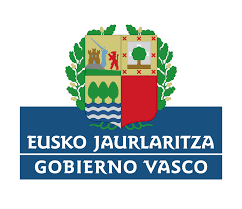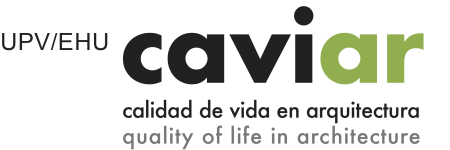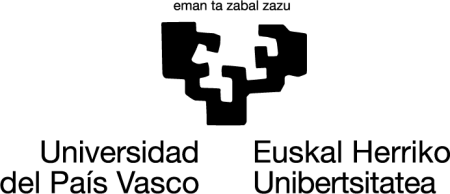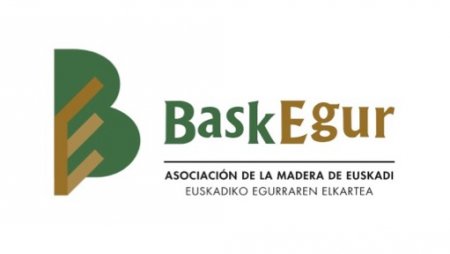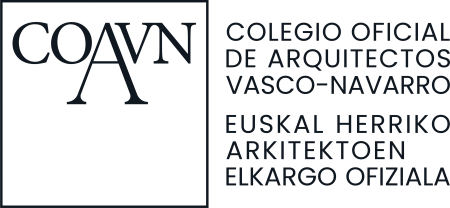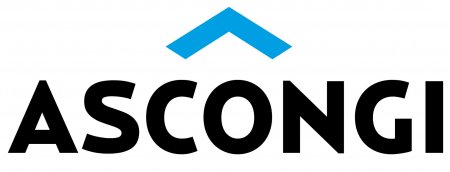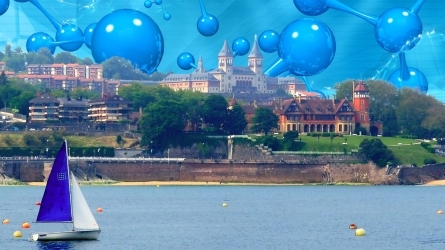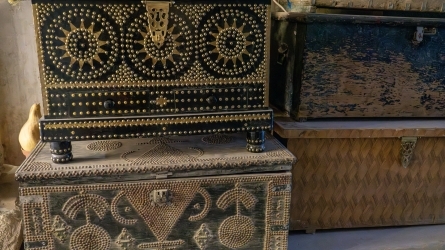
15th edition of the International Conference on Energy Efficiency and Sustainability in Architecture and Urbanism (EESAP 15)
Description
The fifteenth edition of the International Conference on Energy Efficiency and Sustainability in Architecture and Urbanism (EESAP 15) will address the theme of «Co-creation for a better habitat».
Co-creation is a term that is not yet included in the RAE (Spanish Royal Academy of the Spanish Language), however, the use of the term has already acquired maximum relevance in different professional fields and has been applied for some time to the collaborative development of concepts, solutions, products or services.
Of course, it is identified as a methodology that will allow us to face with resilience and greater success the processes of ecological, social and technological transition in which our society is immersed.
The collective habitat construction, understanding HABITAT in all its scales, from land, urban to building, will help us (or at least bring us closer) to guaranteeing the quality of life for all people, as well as a fair climate neutrality achievement.
We would like to structure the contributions around this new way of building habitat and this multi-scale approach in relation to the following four thematic lines: sustainable mobility, green infrastructure, circular economy and social innovation, considering co-creation as a fundamental aspect in the design of built space both in architecture and in the city and land. These 4 lines are addressed by the application of the principle of equality of women and men in all research work, in line with the new European guidelines.
Contributions can be about concrete experiences, good practices, methodologies, methodological explorations or diverse opportunities that contribute to enriching knowledge and promoting collaboration in the creation of more sustainable habitats. These opportunities will have to guarantee equal access to resources and rights for women and men and, through them, for all people in disadvantaged conditions.
Sustainable mobility:
Exploring accessible and environmentally friendly public transport strategies and how their implementation can improve the quality of life in cities through a collaborative approach that involves the community in design and decision-making.
Green infrastructure:
Analysing the impact of the integration of green spaces in urban settings in terms of health, well-being and environmental sustainability, considering the active participation of people in the planning and creation of these spaces in order to leave no one behind.
Circular economy:
Identifying opportunities for the reduction, reuse and recycling of resources in the design and construction of habitable environments, promoting efficiency and sustainability through co-creation processes involving different actors and local communities.
Social innovation:
Exploring how citizen participation and collaboration between different groups can contribute to the inclusive creation, resilient and sustainable communities at all levels of habitat, encouraging co-creation in the design of built space as a medium for empowerment and social cohesion.
Furthermore, since this 2024 edition, gender mainstreaming has been included as an innovative factor. This responds to the change that, from 2020, is proposed by the European Commission, which defines and adopts the EU strategy on gender equality, which presents political objectives and initiatives to make significant progress towards a Europe with gender equality by 2025. In this framework, the 4 thematic lines are an opportunity to mark this path. Innovation also means talking about the mobility of care, guaranteeing and ensuring the active participation of women as bearers of different and often invisible knowledge, in order to build architectural and urban spaces that, leaving behind their presumption of neutrality, guarantee equal access to resources and to the spaces themselves, and that respond to needs that are not normative, but more everyday and differentiated.
In view of this new debate, we invite all our regular collaborators and those who would like to join us in the next edition of our congress to present their ideas and reflections. As in previous editions, and given the congress R+D+i, it is especially aimed at professionals, researchers and students.
Since the EESAP8/CICA1 edition, the conference has extended the scope of scientific and technical diffusion to the entire innovative construction sector. Furthermore, it is opened to the business sector, due to their close relationship to meet current social demands on business innovation for achieving a higher quality of life.
Since the EESAP8/CICA1 edition, the conference has extended the scope of scientific and technical diffusion to the entire innovative construction sector. Furthermore, it is opened to the business sector, due to their close relationship to meet current social demands on business innovation for achieving a higher quality of life.
Objectives
- To discuss the opportunities generated by new models that are greener, digital, resilient and better adapted to current and future challenges.
- To achieve a strategic confluence of training-research-production.
- Linking construction industry players to increase competitiveness by applying new technologies in activities where diffuse but broad expertise is required. Create collaborative business environments.
ABSTRACT SUBMISSION
The Organising Committee encourages and invites researchers or professionals who are specialized in any of the proposed topics to submit their proposals for the oral presentation or poster sessions according to the following rules:
- In case the abstract is accepted, the first author (or anybody who might defend the communication), will have 15 days to formalize the registration for the conference. If the registration is not done within that period, the research work will not be listed in the publication nor presented in the conference.
- At least one of the authors of the oral communication or poster must be registered for the conference. The certificate/s will only be issued for the registered author/s.
- The abstract should be written according to the official template. No other formats will be accepted. The style and extension rules that are detailed in the document should be followed. The template can be downloaded on this website, which is valid for both oral communications and posters.
- Language. The abstract should be written in English. If the abstract is accepted, the full paper communication should be written in both languages, that is, English and Spanish and in any case with non-sexist and non-androcentric language.
- Abstracts, papers and presentations will be required to use non-sexist and non-androcentric language and images. The scientific and organising committee reserves the right to request changes in this regard.
- Once the research works are submitted, there is no option to modify them..
- The abstract must be sent to eesap.caviar@ehu.eus email address. The subject of the email has to include the name of the conference EESAP15 followed by the main author’s name as shown in the example. Example: “EESAP15 MARIA PEREZ GONZALEZ”.
- No other submitting procedure, after deadline, or documents not following the above-mentioned rules will be accepted.
ABSTRACT AND FULL PAPER SUBMISSION
MARCH – APRIL 2024Call for papers.
20th APRIL 2024 Deadline for abstract submission
3rd MAY 2024 Notification of abstract acceptance
19th JUNE 2024 Deadline for Full paper/poster submission
17th JULY 2024 Notification of full paper /poster acceptance
11th SEPTEMBER 2024 Deadline for sending the final version of full paper/poster
25th SEPTEMBER 2024 Deadline for receipt of presentation in .ppt or .pdf format
22-23rd OCTOBER 2024 CONFERENCE
Activity directed to
- All public
- University student
- Teachers
- Professionals
- Profesional: bussines areas
Directors
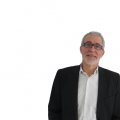
Rufino Javier Hernández Minguillón
UPV/EHU, Arquitectura
PhD Architect UNAV (1991), Master in Building UNAV (1993), lecturer at the ETSA-UNAV (1984 and 2003), lecturer at the UPV/EHU (since 1997), Professor (2020). ANECA and ANEP assessor in the area of Civil Engineering and Architecture. Founder of the architectural firm AH Asociados. Member of the board of directors of the Basque Construction Cluster ERAIKUNE (2013-) and vice-president (2013-2016). Director of the Master Degree in Sustainable Construction and Energy Efficiency (UPV/EHU). Member of the Academic Committee of the University Master Degree in Energy Efficiency and Sustainability in Industry, Transport, Building and Urban Planning (UPV/EHU). Director of the Master Degree in Advanced Construction (UPV/EHU). Head of CAVIAR Research Group, IT1135-16 (UPV/EHU). Researcher in: eco-efficient industrialised construction, inclusive eco-efficient urban planning, smart architecture and urban planning.

Izaskun Aseguinolaza Braga
UPV/EHU
She graduated as an architect at the ETS of Architecture of the University of Navarra where she defended her thesis "The Architectural Dimension in the Origin of British Planning" in 2007. For several years she taught Urban Planning I and II in the Urban Planning and Development specialty at ETSAUN. She is currently Associate Professor of the Urban and Territorial Planning Area of the Department of Architecture of the UPV/EHU where she teaches subjects related to urban planning and urban management.
Speakers
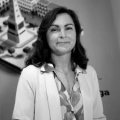
Maria del Carmen García Peña
PhD in Economics and Business and Degree in Economics and Business Administration, specializing in Regional and Urban Economics from the University of Malaga and and Master MBA Plus Executive by the Institute of Business Practice (IPE). Professor of Urban and Regional Economics and member of the research team, Methods of socio-economic analysis. Fuzzy data (fuzzy) SEJ312, of the UMA, as well as multiple research and transfer projects, both regional and national and international. Managing Director of the CIEDES Foundation (Center for Strategic Research and Economic and Social Development of Malaga) since 2011. Member of the Scientific Committee of the Center for Training of Authorities and Leaders (CIFAL) of the UNITAR Agency of the United Nations, specializing in governance, strategic planning and urban sustainability. Advisor and collaborator of numerous city networks and expert groups, such as the Ibero-American Center for Urban Strategic Development (CIDEU), the American-European Association of Regions and Cities (AERYC) and the network of Mediterranean cities for urban strategic planning (MedCities).
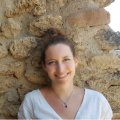
Noemi Julián
Noemí studied Architecture and a master’s programme in Architecture in the University of Zaragoza and later she studied a master’s programme in urban regeneration and social innovation in the University IUAV of Venice in 2018. She works as a project manager for Fondazione Innovazione Urbana Rusconi Ghigi since 2019. During these years she has developed different participatory processes related to climate, sustainable mobility, urban space and tactical urbanism, accessibility and digital policies. These processes, based on inclusive approaches, have involved different stakeholders of Bologna as well as citizens and children. In 2023 Noemí, as part of the Assembly’s Organisation Committee and FIU, managed the organisation of Bologna’s first Climate Citizens’ Assembly, a deliberative process that involved 100 citizens randomly selected and representative of Bologna’s population. The Assembly members proposed different actions to mitigate and adapt to climate change in Bologna. Noemí is currently working on Bologna's Digital Twin project. In 2021 Noemí designed together with 3 colleagues the project “Via Appia: nature and heritage for all”, which was finalist of the first edition of the New European Bauhaus prizes - category under 30

Francisco Javier Neila González
F. Javier Neila González holds a PhD in architecture and is Professor Emeritus at the School of Architecture of the Polytechnic University of Madrid, where he has been a professor since 1979. He is the author of 117 books on sustainability, bioclimatic architecture, habitability and wellbeing, and 109 articles in scientific journals. So far he has supervised 39 doctoral theses, all of them successfully read. He holds 12 patents. He has been the principal investigator responsible for and founder of the ABIO group, Bioclimatic Architecture in a Sustainable Environment, with which he has developed 72 research projects funded by competitive calls, 6 of them European. He has also been the director and creator of the Master in Environment and Bioclimatic Architecture, with more than 23 promotions, in which students from all over the world have participated. During these years he has participated in more than 500 courses, seminars and conferences. As an architect he has carried out 98 projects. He has received 20 awards of different kinds.
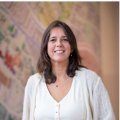
Ellen Van Bueren
Ellen van Bueren is full professor Urban Development Management at the Faculty of Architecture and the Built Environment of Delft University of Technology. The governance and management of urban development in support of a sustainable built environment is at the core of her work. She is involved in research and education on policy, planning and decision-making for climate adaptative, resilient, and circular built environments. Her work is of an inter- and transdisciplinary nature, crossing boundaries between theoretical knowledge and societal needs. Focusing on impact for society, she is engaged in action-oriented research and challenge-based education. She publishes in public, professional and academic media, and holds various supervisory board positions in society. In her research and educational activities, she addresses the challenges involved in preparing cities for the future, by making them more resilient, resource efficient and sustainable. New technologies and concepts, lead to a reconfiguration of urban systems and actor networks, calling for institutional change and novel governance arrangements to provide adequate responses.
Registration fees
| Registration | Until 24-07-2024 | Until 21-10-2024 |
|---|---|---|
| 100,00 EUR | 150,00 EUR | |
| 30,00 EUR | 30,00 EUR | |
| 45,00 EUR | 45,00 EUR |
Venue
School of Architecture
Plaza Oñati, 2 | 20018 Donostia/San Sebastián
Gipuzkoa
School of Architecture
Plaza Oñati, 2 | 20018 Donostia/San Sebastián
Gipuzkoa
